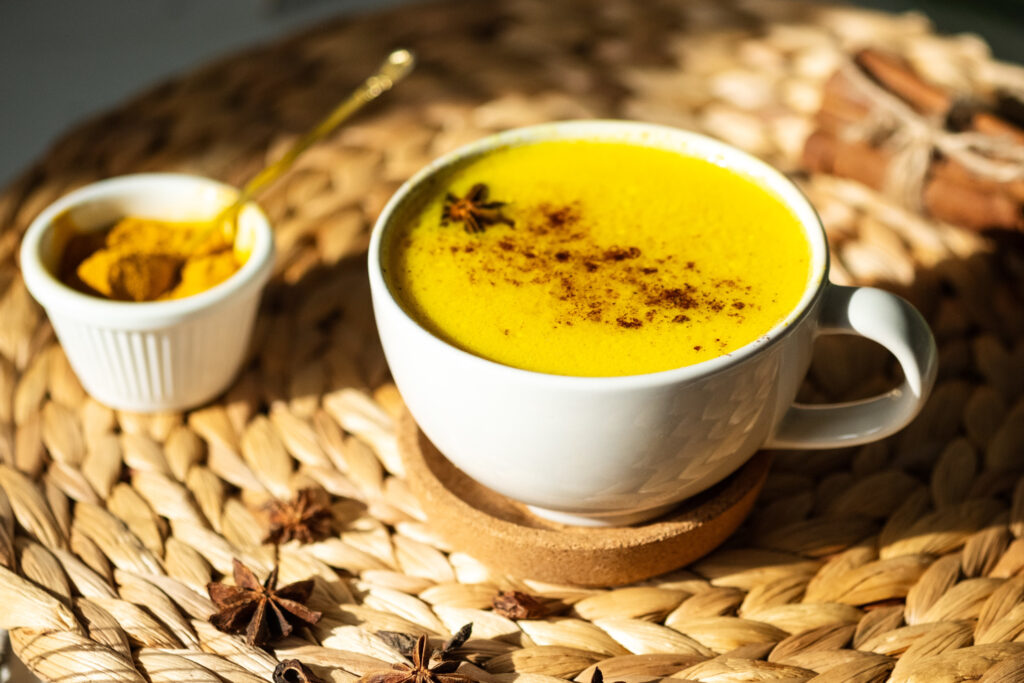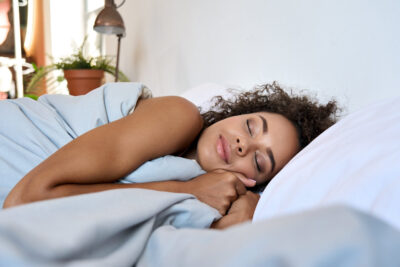
Sleep is absolutely crucial for good health, yet many of us struggle to get enough rest. Whether it’s difficulty getting off to sleep, or waking up in the night, a lack of good quality repose can leave us feeling exhausted the next day. In fact, sleep deficiency has been associated with chronic health problems such as high blood pressure, stroke, heart disease, kidney disease, diabetes, obesity and depression.
World Sleep Day is an annual campaign which takes place on 17 March with the aim of raising awareness of the importance of good quality rest. Lourdes DelRosso, MD, PhD, World Sleep Day 2023 Co-Chair said: “People should think about sleep like they do other important healthy behaviours such as exercise – as something to reflect upon and, when appropriate, improve so that one can feel better and remain healthier over time.”
So, with this in mind, let’s take a look at why good shut-eye is so important. And what can we do to improve our quality of rest?
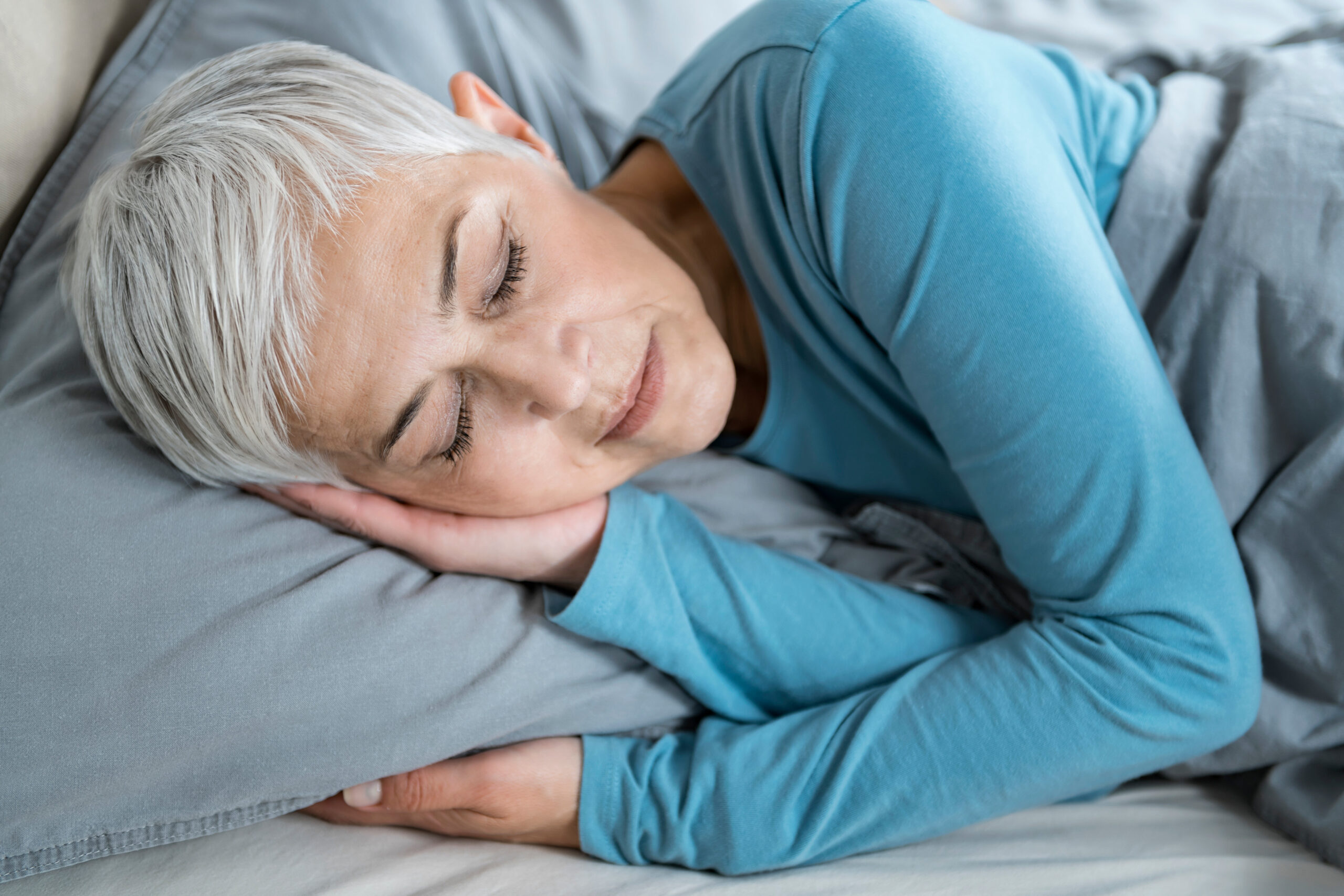
Why is sleep so important?
Put simply, we need good sleep in order to function well and enjoy a good quality of life. While we are sleeping, our body and brain can slow down and perform recovery processes such as cell repair.
Sleep deficiency can have a negative effect on our mental health and our immune system. It also increases our risk of diabetes, obesity and cardiovascular disease. It is also linked to poor performance at school and work. Put starkly, the World Sleep Society says that “sleep problems constitute a global epidemic that threatens health and quality of life for up to 45% of the world’s population”.
The amount of rest we need varies depending on our age. According to the Sleep Foundation, babies need around 12 to 17 hours of shut-eye per night, and toddlers need 11 to 14. School-age children should get between nine and 11 hours sleep per night. Adults between the ages of 18 and 64 need seven or more hours, whereas adults over 65 need seven to eight hours.
What can cause insomnia?
Studies have shown that approximately 30% of people around the world experience at least one of the symptoms of insomnia. These include struggling to get to sleep, difficulty staying asleep, waking up too early and non-restorative or poor quality sleep.
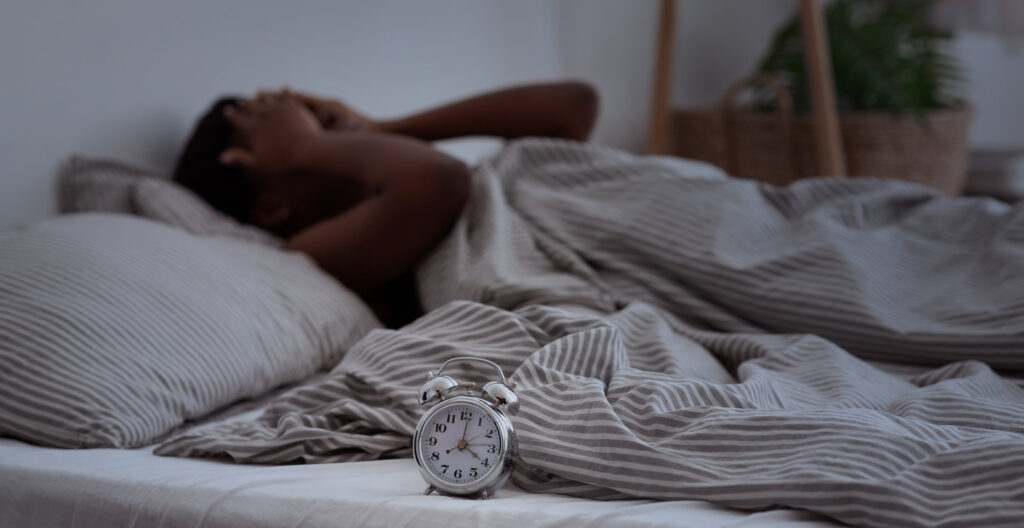
According to the Sleep Charity, the most common causes of chronic insomnia include anxiety, stress and depression. Medical conditions such as allergies, asthma, arthritis, gastrointestinal problems, neurological conditions and chronic pain can also be the cause of sleep disruption. Low blood sugar can also lead to sleep problems. Things like infections, poor food choices and food sensitivities can cause the body’s blood sugar levels to dip too low during sleep. This leads us to wake up as a protective response.
Hormone imbalance can be another factor in insomnia. The body’s sleep hormone is melatonin and it is produced naturally by the pineal gland in the brain in response to darkness. Melatonin production stops in response to light. Melatonin production regulates the body’s circadian rhythms, which are the natural changes that the body goes through over a 24-hour period. The body’s sleep-wake cycle is one of the most important circadian rhythms. Certain factors can disrupt the production of melatonin such as stressful activities, exposure to bright lights or eating a heavy meal close to bedtime. A reduction in hormone levels during the menopause can also lead to insomnia for many women.
Sensitivity to caffeine is another reason why people might experience sleep problems. Caffeine is a stimulant which blocks the body’s production of adenosine, the chemical which promotes sleepiness. Caffeine has been shown to disrupt our body’s circadian rhythms and reduce our total sleep time when consumed six hours before bedtime.
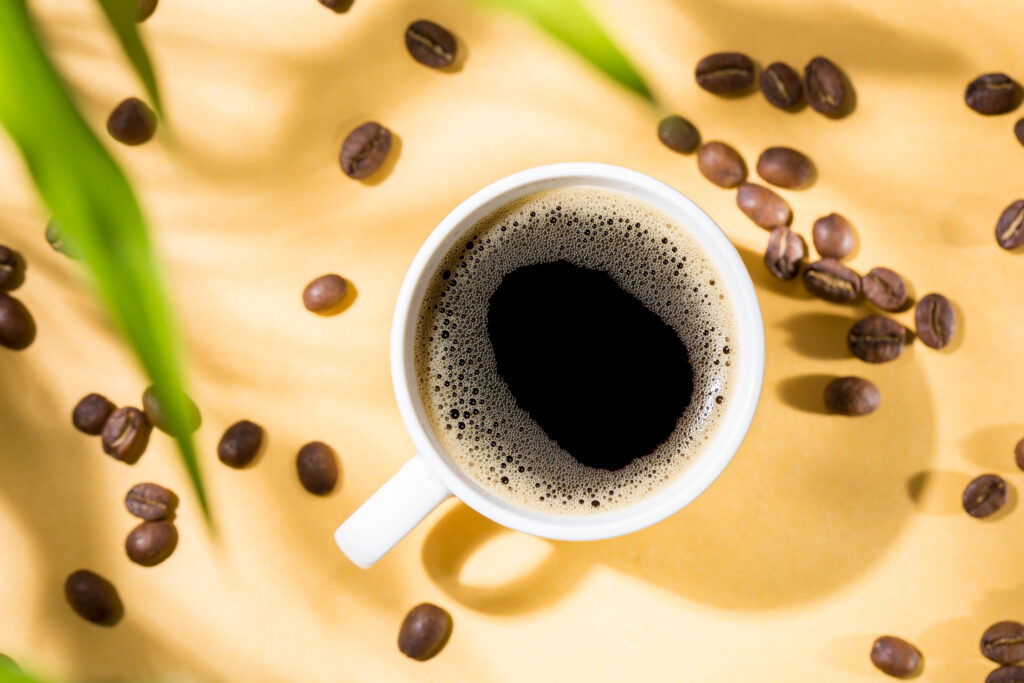
Can you eat your way to better sleep?
What we eat and drink can have an effect on the quality of our sleep. As stated above, caffeine is a stimulant which can disrupt sleep, so it’s best avoided six hours before bedtime. Caffeine can also be found in chocolate as well as some fizzy drinks, so these are best avoided close to bedtime too.
The chemical tryptophan, which is found in certain foods, is converted into 5-HTP in the body. This chemical is needed to produce melatonin, as well as the hormone serotonin, which improves mood. Tryptophan is found in foods such as oats, bananas, dried prunes, cheese, peanuts and milk. So there’s evidence to back up the traditional home remedy of a warm, milky drink before bedtime!
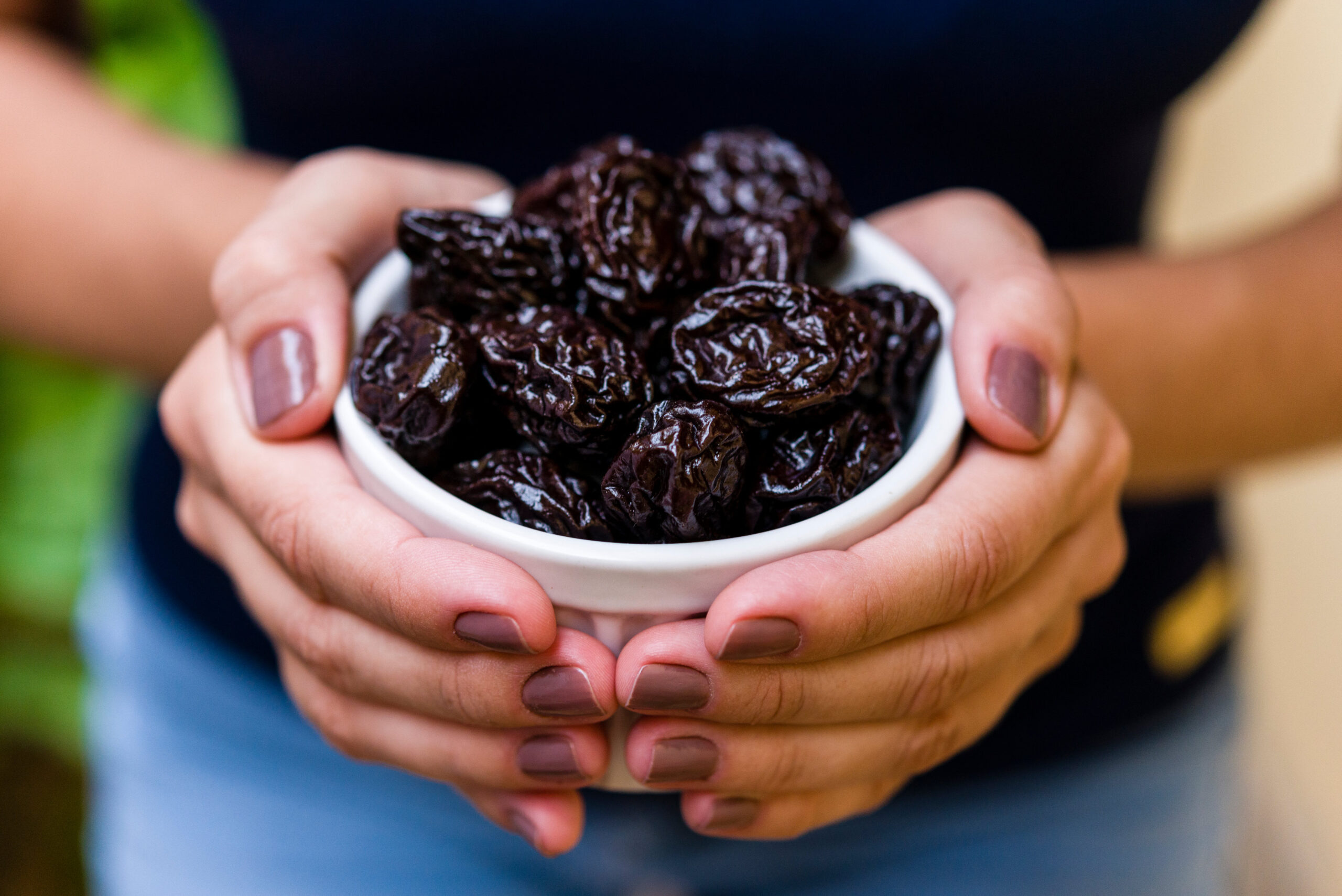
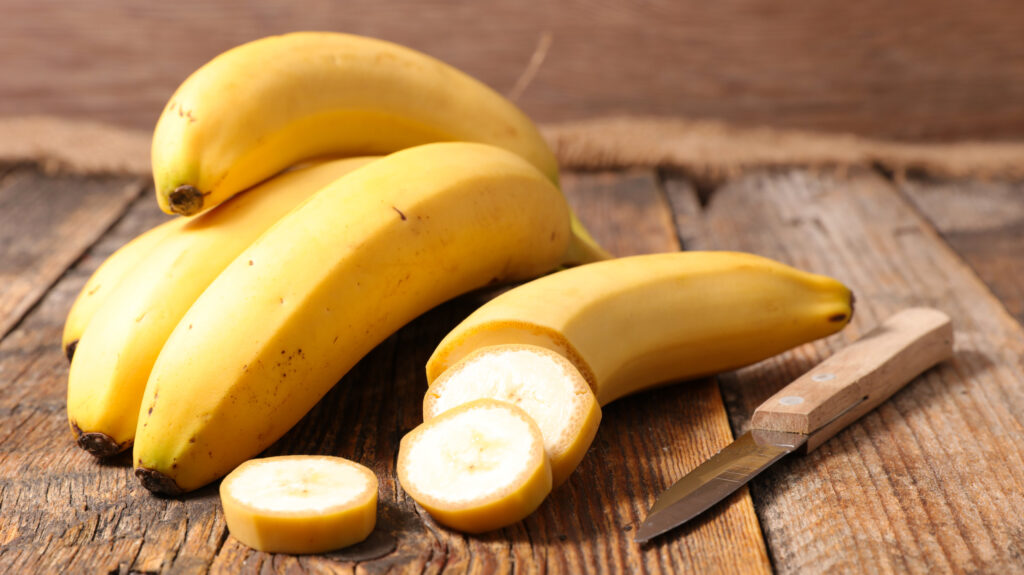
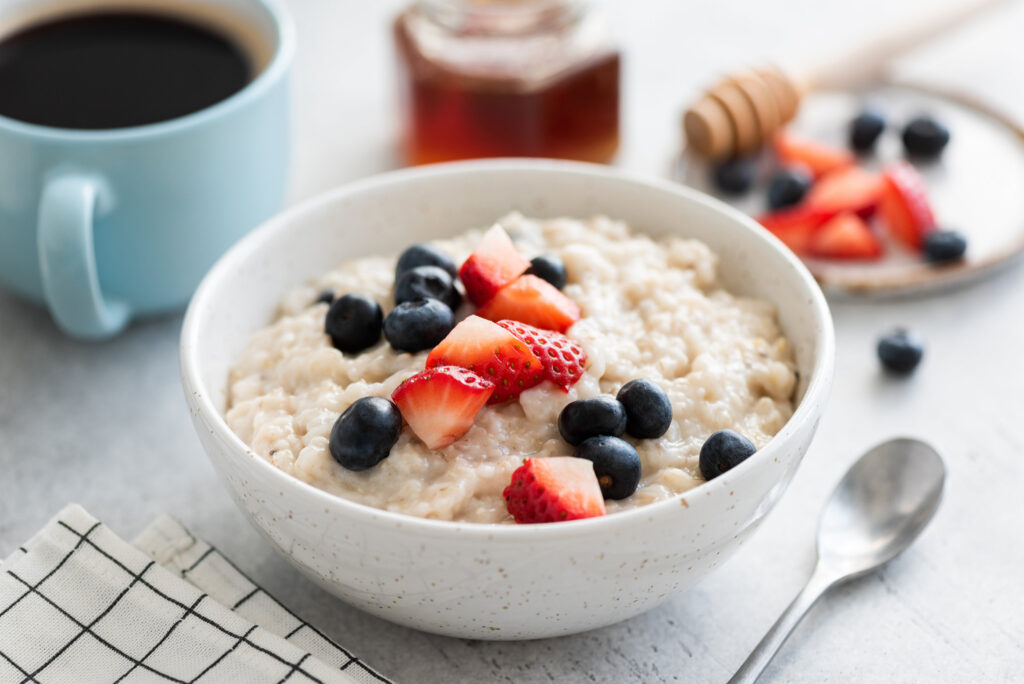
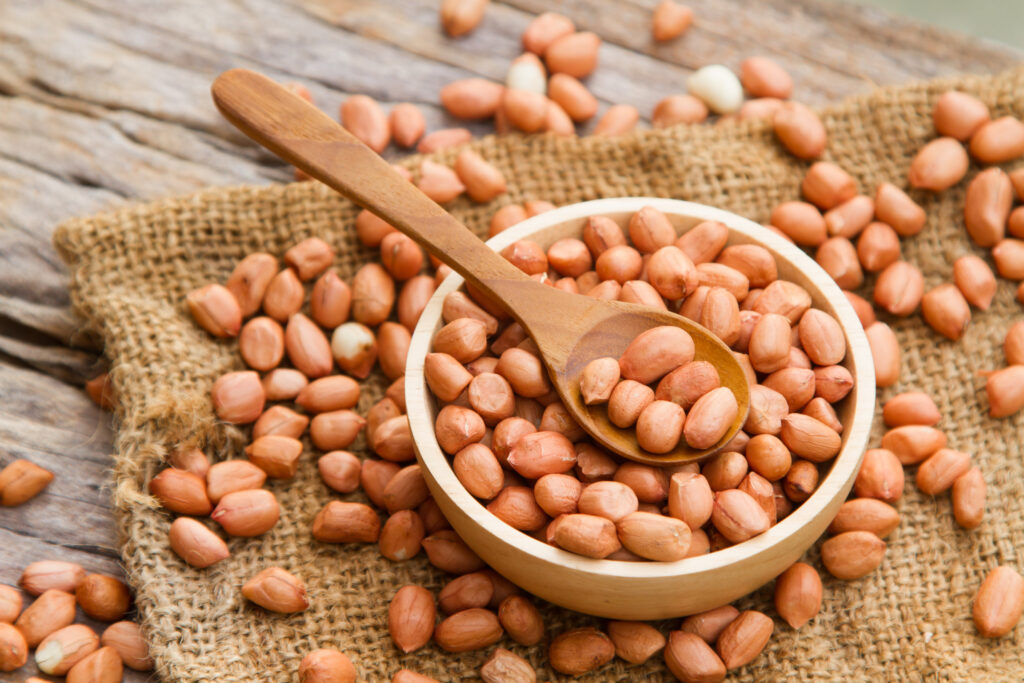
Almonds are a great sleep-promoting food as they are a good source of melatonin and also the mineral magnesium. Studies have shown that consuming magnesium may help those who struggle with insomnia. Magnesium is known as the relaxation mineral and it has the ability to reduce levels of the stress hormone cortisol.
Tart cherry juice could also help to improve sleep due to the fact that it is rich in melatonin. Studies have shown that it has helped individuals with insomnia, so it might be worth drinking a glass as part of your nighttime routine.
Herbal helpers and natural remedies
Herbal teas can help to calm the mind, ready for sleep. Chamomile contains a chemical called apigenin which interacts with the receptors in the brain that promote sleep. Passionflower is also helpful for mild insomnia as it has a calming effect and can help to restore beneficial sleep patterns. Valerian is another great herb for reducing anxiety and improving sleep. It works particularly well in a tea when combined with lemon balm. Try drinking a cup an hour before going to bed.
Lavender is a well-known sleep-promoting herb which is often added to sleep sprays that you can spray on to your pillow to help you to doze off.
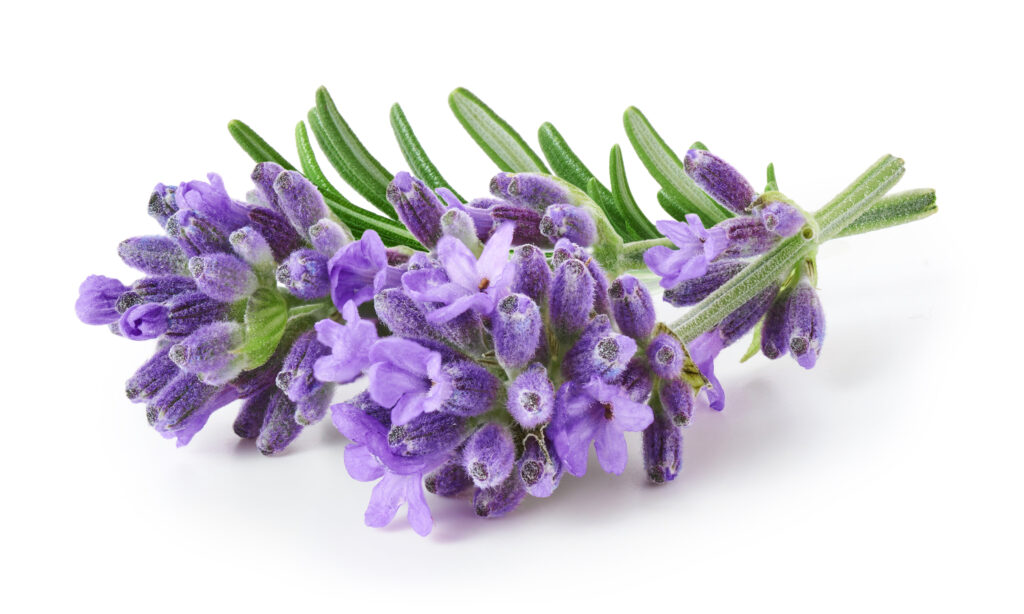
Ashwagandha is an Ayurvedic herb that has been shown to help encourage us to doze off. Try adding some Ashwagandha powder to your cup of hot milk just before bed as the tryptophan in the milk will add to the sleep-promoting effect.
Key nutrients for helping to promote sleepiness include magnesium, B6 and zinc. The body needs these particular vitamins and minerals to create the hormones GABA and melatonin, which enable us to drift off. As mentioned earlier, the body needs the chemical 5-HTP to produce melatonin, and this can be taken in supplement form. Similarly, the chemical theanine is used by the body to create the sleep hormone GABA. Again, this can be taken in the form of a supplement. It’s always best to check with your doctor first though before taking supplements.
How to practise good sleep hygiene
It’s an odd phrase, but sleep hygiene refers to the routine we follow when we go to bed. Practising good sleep hygiene can make all the difference when it comes to getting better rest.
Ensure that your bedroom is dark, to encourage the body’s production of melatonin. Use an eye mask if necessary and look for one made from breathable material which completely blocks out all light. Ensure that curtains or blinds are well fitted and turn off any standby lights. Also, try to make sure that your mattress and pillow are the right size and firmness for you to feel comfortable. The ideal room temperature is around 16 to 17C – not too hot and not too cold. Air quality is important too, so make sure that the room is well ventilated. Avoid drying clothes in your bedroom in order to maintain stable humidity levels.
Try to make sure that the room is as quiet as possible. We can’t always account for outside noise, so use some earplugs if you have noisy neighbours!
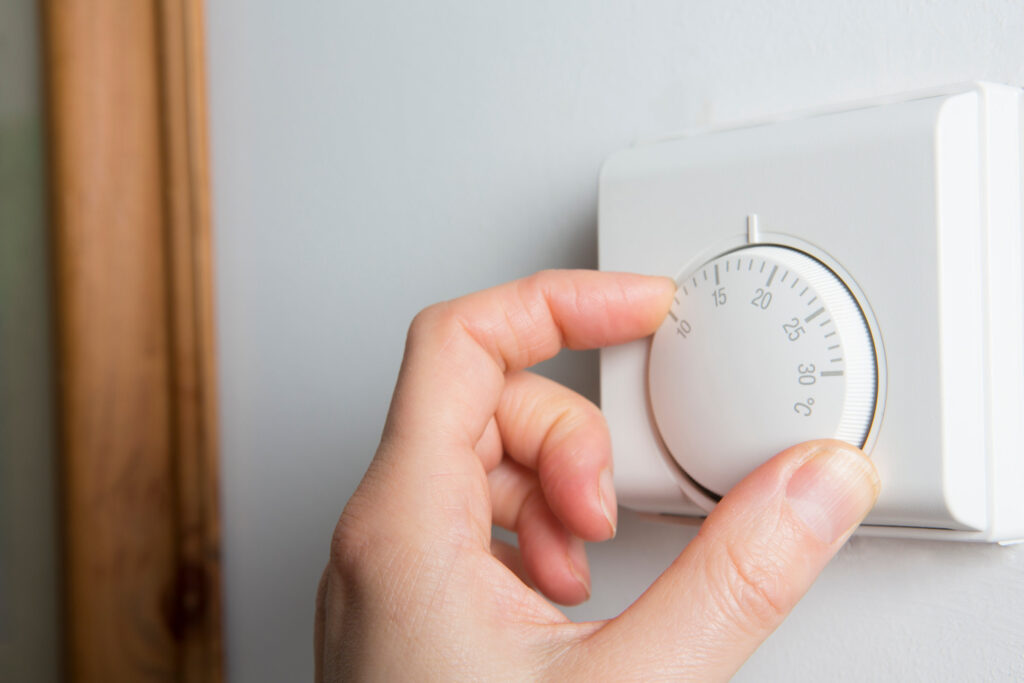
Switch off your mobile phone!
This last point is a tricky one, particularly if you are very attached to your mobile phone. Try to avoid mental stimulation so that your brain is given the chance to wind down ready for sleep. This means avoiding the use of any digital devices with screens such as mobile phones, laptops, computers and TVs for an hour before bed. It might be something you associate with getting into bed, but it’s not helping your mind to switch off! Electronic devices such as tablets and smartphones expose us to blue light, which makes the brain think that it is daytime. This stops the production of melatonin and makes it harder for us to get to sleep.
Instead, try to get into a different bedtime routine which will encourage relaxation. A warm milky drink, listening to some soothing music or doing some yoga or meditation will be much more beneficial.
Try these tips and hopefully your struggles with sleep will become a distant memory. Sweet dreams from us here at Real Foods!
